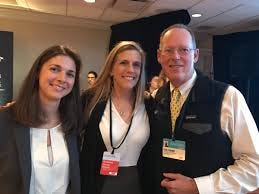This article was originally posted in January 30th, 2018 on Jennifer Schechter’s Medium.
Bending the Arc, a new documentary by filmmakers Cori Shepherd Stern, Kief Davidson, and Pedro Kos about the origins of the non-profit organization, Partners in Health, was released in select theaters. The movie chronicles organization founders — Jim Yong Kim, Paul Farmer, and Ophelia Dahl — three idealists who began providing medical care to the poorest of the poor in a squatter settlement in Haiti and went on to transform global healthcare.
I had an opportunity to see a screening, shortly after it premiered at Sundance, which was a profound and moving experience. It is a beautiful film, depicting not only the impact Partners In Health has had on their patients around the world, but also how the organization and its founders changed the way we think about what is possible. The work and lives of Paul, Ophelia and Jim resonated beyond saving lives. Their work, and the way they have taught the world to think about providing healthcare to the poor, has touched and transformed communities throughout the world, including one in northern Togo.
I am the executive director of Hope Through Health, a non-profit organization aimed at transforming the way healthcare is delivered in Togo, West Africa. Our official line is that this work was inspired by Dr. Farmer’s work, but without his encouragement, this work would never have begun.
In 2003, my co founder and the chief strategy officer of Hope Through Health, Kevin Fiori, arrived in Togo as a Peace Corps Volunteer and began working with an incredibly motivated group of about 30 Togolese individuals living with HIV. At the time, that diagnosis was a death sentence. There was no treatment available to them, but they simply refused to accept the status quo. This group had little funding and even less support, but they came together to take care of each other and fight for their right to health. Treatment was available for others and these courageous individuals were willing to fight for access. Kevin was inspired.
Kevin reached out to Paul to see if Partners In Health might be willing to expand into Togo, but PIH was already spread too thin. Paul presented an alternative offer. “If you start something, we’ll help,” he said. “Joia and I will review your plans, make comments and provide technical advice.”
That offer was enough to give Kevin the courage to act. He received $5,000 in “seed funding” from family, incorporated Hope Through Health as a 501c3, and began collaborating with patients in northern Togo.
There is a scene in Bending the Arc where a woman, Adeline, is shown lying on a bed. She is emaciated, a skeleton, forgotten by the world and left for dead. Adeline’s painful story, so beautifully and poignantly depicted in the film, recalled those early days working in Togo. A rush of emotions and a cascade of memories came back in that theater. I remembered the tears of grief and pain that we experienced each night giving over to outrage.
Without the consistent guidance of Paul and Joia Mukherjee, the chief medical officer at Partners In Health, our organization would likely have failed. Paul also provided the writing to recruit others to our cause. In fact, when I first moved to a small village in the north of Togo, about 30 kilometers from where our program was being built and told Kevin I wanted to help, he handed me a copy of the second edition of the Partners In Health’s “Guide to Community-Based HIV Treatment in Resource Limited Settings,” which he referred to as his “bible.” Equipped with the guide and a manila folder containing printouts of everything written and published by Paul and his team, we began to work. We passed that ever expanding file from volunteer to volunteer until it was worn and frayed, its contents turned brown from the red dust of northern Togo. Perhaps even more than the content itself, these words confirmed that we were not alone in our outrage, showing a path to ending the grave injustices we bore witness to daily.
We tried, as best we could, climbing upon the shoulders of giants like Paul and Joia, to follow their advice and to aspire to have the audacity to believe that we could change the status quo. Slowly, patient by patient, things began to change. The funerals became fewer. The transformations, known as the Lazarus effect, that brought patients back from the brink of death, became more common.

Today, with HIV largely transformed from a death sentence to a manageable chronic disease, we continue to follow the lead of Partners In Health. We still fight for the right to health for our patients, but we are also working to strengthen primary healthcare delivery systems in partnership with the Government of Togo, so that no adult or child dies “a stupid death.”
This journey has not been easy, but the film was an affirmation. It is a celebration of those to whom we owe so much, a reminder that while we have much left to accomplish, we must find strength in the indomitable spirit of our patients, find courage in their will to live and never stop fighting for their right to health. I am grateful to the filmmakers for documenting a story that has been so influential in my life and a story that has not only saved thousands of lives across the world, but in doing so has changed the way we conceive of what is possible, what is right and what is required of us.
